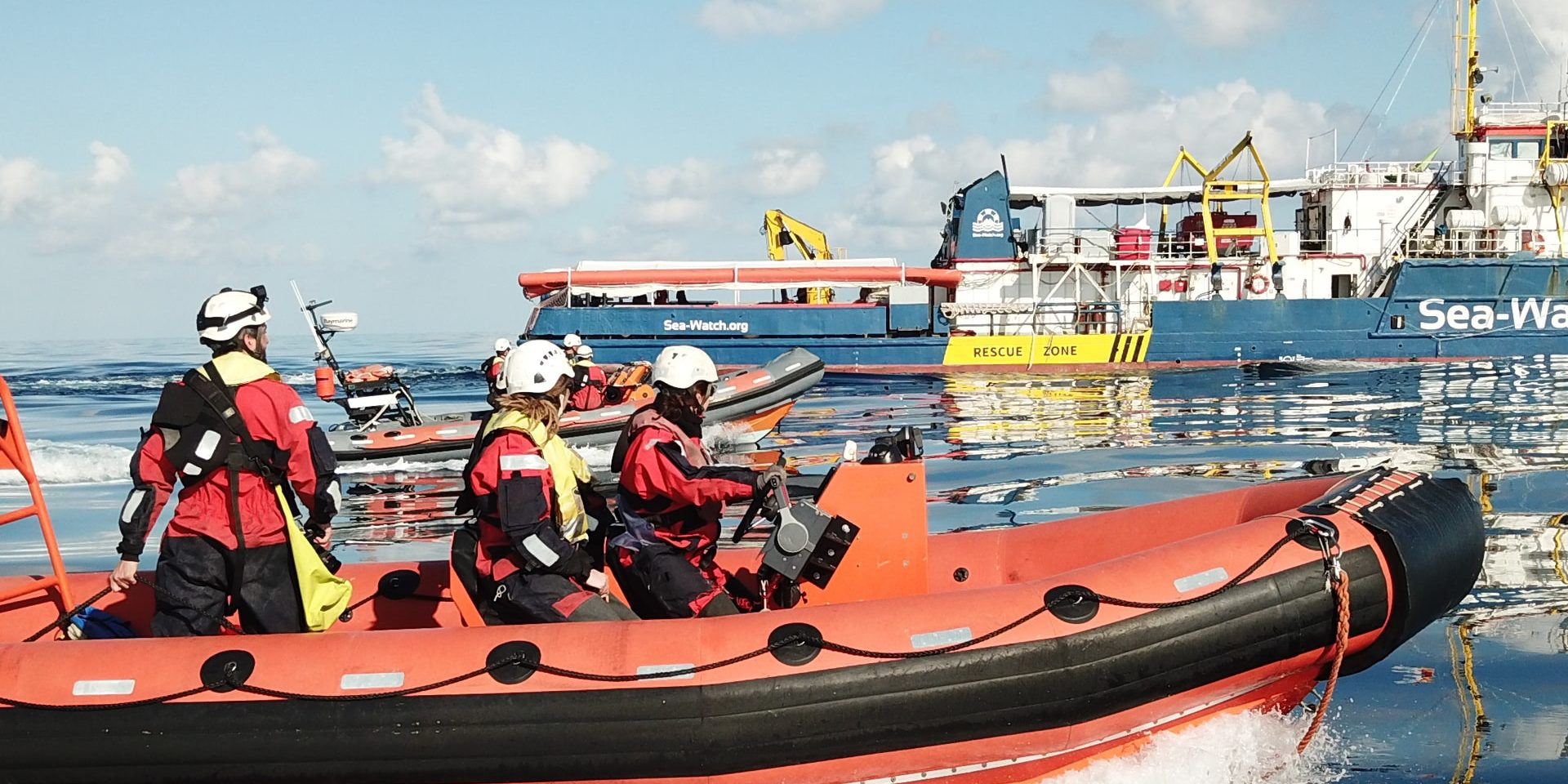The civil rescue organization Sea-Watch sharply criticizes the decree passed by the ultra-right Italian government on Dec. 28, 2022. This decree provides that rescue organizations face severe penalties if they do not immediately leave the search and rescue zone after an initial rescue. Shortly before, the government had already introduced a new practice dealing with rescue ships. By explicitly assigning distant locations as safe ports for disembarking rescued persons, rescue ships are to be kept away from the rescue zone for as long as possible.
The decree, issued on Dec. 28, 2022, directly targets civil sea rescue organizations and explicitly names ships that systematically or not only occasionally conduct search and rescue operations as the scope of application. It includes administrative sanctions ranging from fines up to €50,000, detention of the vessel, to seizure and confiscation of the ship.
Among other things, the decree requires civil rescue organizations to request a safe port immediately after an initial rescue and proceed to that safe port without delay. However, if civil rescue vessels are forced into a port after the first rescue has been completed while more people are in distress at sea, this violates every captain’s duty to rescue, which is enshrined in international law. Failure to do so is a punishable offense.
“The Italian government’s new decree is a call to let people drown. Forcing ships into port violates the duty to rescue should there be more people in distress at sea. We will also resist this attempt to criminalize civil sea rescue and deprive people on the move of their rights,” says Oliver Kulikowski, spokesperson for Sea-Watch.
In addition, according to the decree, captains of civil rescue ships are to be obliged to obtain a declaration from rescued persons on their willingness to apply for international protection. However, this lacks any legal basis. Instead, the United Nations High Commissioner for Refugees (UNHCR) has clarified that ship captains are not responsible for determining the legal status of rescued persons. On the contrary, they should inform rescued persons that the captain does not have the authority to hear, consider, or decide on an asylum claim. Everyone has the right to access fair asylum procedures. These include, among other things, access to translators, respect for privacy during hearings, the guarantee of access to adequate legal counsel, and provision of appropriate remedies – all of which cannot be implemented on rescue ships.
Before, the Italian government had already changed its practice regarding the allocation of safe ports: Rescue ships are specifically assigned to distant locations for disembarkation of rescued persons, which delays re-deployment and thus further increases the glaring rescue gap in the Mediterranean Sea.
“The politically motivated allocation of distant ports endangers the health of rescued people and is intended to keep rescue ships out of the Mediterranean for as long as possible. The Italian government thereby makes itself directly responsible for health consequences on board the rescue ships,” said Hendrike Förster, Sea-Watch Medical Coordinator.
Also this year, according to the International Organization for Migration (IOM), more than 2000 people have lost their lives fleeing across the Mediterranean, over 25,000 since records began in 2014.











